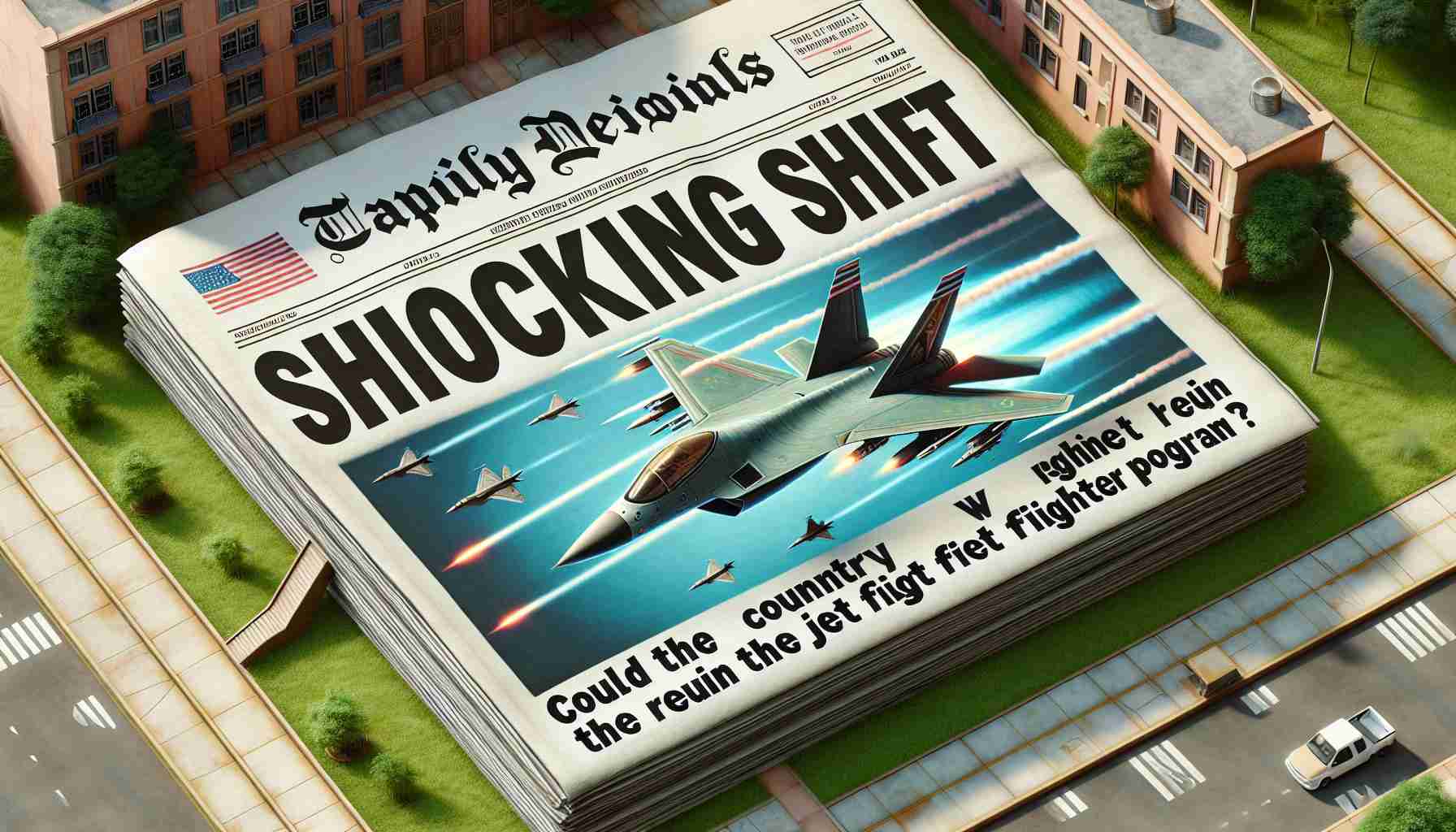- Turkey’s involvement in the F-35 program is being reconsidered after its suspension in 2019 due to the S-400 missile system purchase.
- A recent Congressional Research Service report evaluates Turkey’s financial contributions and roles in F-35 technical maintenance.
- The F-35 program’s future is uncertain, with ongoing debates in Congress about Turkey’s potential reinstatement.
- Other international partners, including Australia, Canada, and Norway, continue to support the program amid evolving geopolitical contexts.
- The outcome of Turkey’s return remains to be seen, reflecting broader themes of cooperation and trust in international defense partnerships.
On February 12, 2025, a pivotal report has sparked conversations in the halls of Congress—Turkey’s potential return to the F-35 fighter jet program is back on the table. Once a key player among the eight international partners in this advanced project, Turkey’s collaboration was halted in 2019 when the United States removed it due to Turkey’s controversial purchase of the Russian S-400 missile defense system. The U.S. feared this move might compromise the security and stealth capabilities of the F-35 by providing Russia with crucial data.
The recent Congressional Research Service (CRS) report sheds new light on this complex situation, raising questions about Turkey’s eligibility and its financial contributions, which range from $125 to $175 million. It highlights the potential for Turkey to take on significant roles in technical maintenance and engine repairs, a task critical to the F-35 program.
This report has reignited heated discussions about the fate of Turkey within the F-35 project. Can the U.S. Congress overlook past tensions and welcome Turkey back into the fold? As countries like Australia, Canada, and Norway continue their contributions, the 2025 landscape may very well shift, inviting new possibilities for collaboration.
The key takeaway? As geopolitical dynamics change, the F-35 program’s future remains as unpredictable as ever. Will Turkey regain its seat at the table, or will previous decisions cloud this relationship forever? Only time will reveal the answers.
The F-35 Program: Turkey’s Controversial Comeback in 2025
Turkey’s F-35 Program Controversy and Future Prospects
As of February 12, 2025, Turkey’s potential re-entry into the F-35 fighter jet program has sparked lively discussions within the U.S. Congress, reigniting debates over geopolitical alliances and defense partnerships. Turkey was once a pivotal player in the F-35 project, but its 2019 exclusion due to the acquisition of the Russian S-400 missile defense system has complicated its role. The U.S. was concerned that this move might compromise key technologies essential to maintaining the stealth capabilities of the F-35 jet.
# Key Developments and Insights
1. Eligibility and Financial Contributions:
– The recent Congressional Research Service (CRS) report has emphasized Turkey’s financial contributions to the F-35 program, which amount to between $125 and $175 million. This financial stake could play a crucial role in determining its eligibility for reinstatement.
2. Technical Roles:
– The report highlights potential roles for Turkey in maintaining and repairing F-35 engines, which are vital tasks within the program. This could provide Turkey with a significant position in the F-35 ecosystem if welcomed back.
3. Geopolitical Dynamics:
– The changing geopolitical landscape, with countries like Australia, Canada, and Norway maintaining their support, may influence Turkey’s position. There is speculation about whether the U.S. Congress will prioritize past grievances over new strategic partnerships.
# Top 3 Questions About Turkey’s Return to the F-35 Program
1. What are the implications of Turkey’s return for U.S.-Russia relations?
– Turkey’s reintegration into the F-35 program may complicate U.S.-Russia relations, especially if it signals a move away from reliance on Russian defense systems. It could also impact NATO’s collective security strategy.
2. How might Turkey’s involvement in the F-35 impact regional security dynamics?
– A reinstated Turkey could enhance NATO’s capabilities in the Eastern Mediterranean and the Middle East, potentially altering the balance of power in these regions, particularly regarding U.S. and European interests.
3. What are the risks associated with allowing Turkey back into the F-35 partnership?
– Concerns remain regarding the safeguarding of sensitive technology and intelligence, as well as Turkey’s longstanding relationships with Russia, which could pose risks to the F-35’s advanced capabilities.
Additional Aspects to Consider
– Limitations:
– Turkey’s previous decisions and alliances may cast doubt on its reliability as a partner in sensitive defense projects.
– Comparisons:
– Examining the F-35 program’s performance against other international fighter programs could provide insights into whether reinstating Turkey is strategically advantageous.
– Market Forecasts:
– Should Turkey return, analysts predict a possible enhancement of the F-35 market positioning, impacting sales and partnerships globally.
– Security Aspects:
– Reintegration would necessitate stringent security measures to prevent potential leaks of critical technologies.
Related Links
– Defense News
– Aerospace Technology
– Forbes
The F-35 project’s future hangs in a delicate balance as discussions evolve. The decisions made in 2025 will likely have lasting implications for international defense collaboration and security frameworks.
